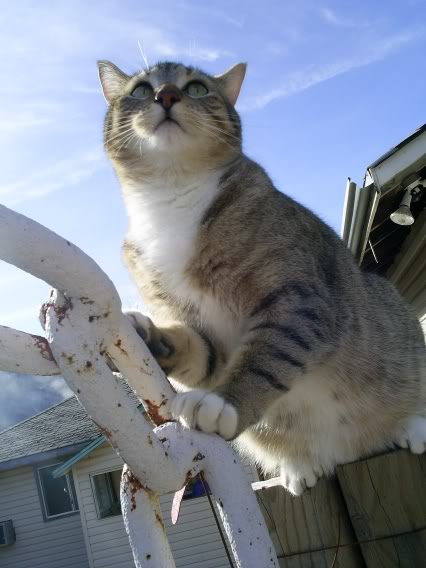Despite their tropical habitat macaws are hardy birds in captivity, when once acclimatized, as well as being easy to feed and very long-lived.
Macaws have notably large beaks and long tails, and certain kinds - since vanished - used to inhabit the Antilles Islands. Nowadays they are only found in the tropical parts of America where they frequent the forests and, unlike many members of the parrot family, go about in pairs rather than flocks.
Unfortunately no ordinary parrot-cage is large enough to house the best-known and largest species, consequently they are usually kept chained by one leg to a "macaw stand" of a kind which must be familiar to anyone who has visited a pet shop or a zoo. While such a contraption permits them to flap their wings and take a certain amount of exercise, I dislike the idea of any bird, particularly an active one such as a macaw, being kept permanently chained up in this fashion, just as a dog should not be permanently kept on a lead.
As often as possible when you are with it, the chain should be removed and you should talk to and make a fuss of it, and let it climb about unfettered on its stand, or on your arm or shoulder. If both you and your bird do not mutually derive pleasure from this, the latter would be far better off under other, kindlier and more sympathetic ownership.
All birds need a bath of some kind and as the average macaw on a stand hardly ever gets one, its plumage suffers accordingly. Either the bird can be put out on its stand in a shower (not a deluge) of rain or else it can be periodically sprayed with rainwater.
This they so much appreciate and look forward to that one quite looks forward to the operation oneself. The instrument used must give a fine misty spray, and the birds will soon get to know its appearance so well that they will start spreading their wings and ruffling and shaking their feathers as though they are already wet through before one has even started!
Macaws should be fed chiefly on sunflower seed and monkey-nuts to which may be added a little wheat, groats, oats, and canary, as well as a small quantity of maize and hemp. Brazil nuts would remind them of home, and the larger species, at any rate, deal with them as easily as a zebra finch shucks millet!
They are not a necessity, of course, but an occasional one would not only provide nourishment for the bird but healthful exercise for its beak as well. Fruit such as sweet ripe apple should be given regularly, and they also enjoy the midribs of seakale-beet, or ordinary spinach-beet, as green-foods.
Young macaws appreciate a little sweetened bread and milk daily, and as an addition to their usual diet I make a practice of giving this twice a week to adult specimens as well.
To sum up: a pet macaw should be enabled to take plenty of exercise; should not be kept in too hot a room; should be regularly given something to amuse it and exercise its beak on - such as an empty cotton-reel - and should receive a great deal of attention and affection from its owner. This, after all, it only a just and reciprocal arrangement, and. if there is no affection between a bird and its owner the sooner they are parted the better.

 Notes For Your Vacation Rental Pet Policy
Sometimes the blues could very well set in and after a vac
Notes For Your Vacation Rental Pet Policy
Sometimes the blues could very well set in and after a vac
 Why Wetlands Are An Critical Aspect Of Eco
Pets are usual areas of peoples lives it isnt really at all
Why Wetlands Are An Critical Aspect Of Eco
Pets are usual areas of peoples lives it isnt really at all
 Weekend Retreat Tips - 15 Common Vacation Disability Benefits You Can Remain!
Points of interest. russian trips are good methods for those
Weekend Retreat Tips - 15 Common Vacation Disability Benefits You Can Remain!
Points of interest. russian trips are good methods for those
 The Language Makes For An Great Vacation Hire?
1 more unique vacation home business that is to be had durin
The Language Makes For An Great Vacation Hire?
1 more unique vacation home business that is to be had durin